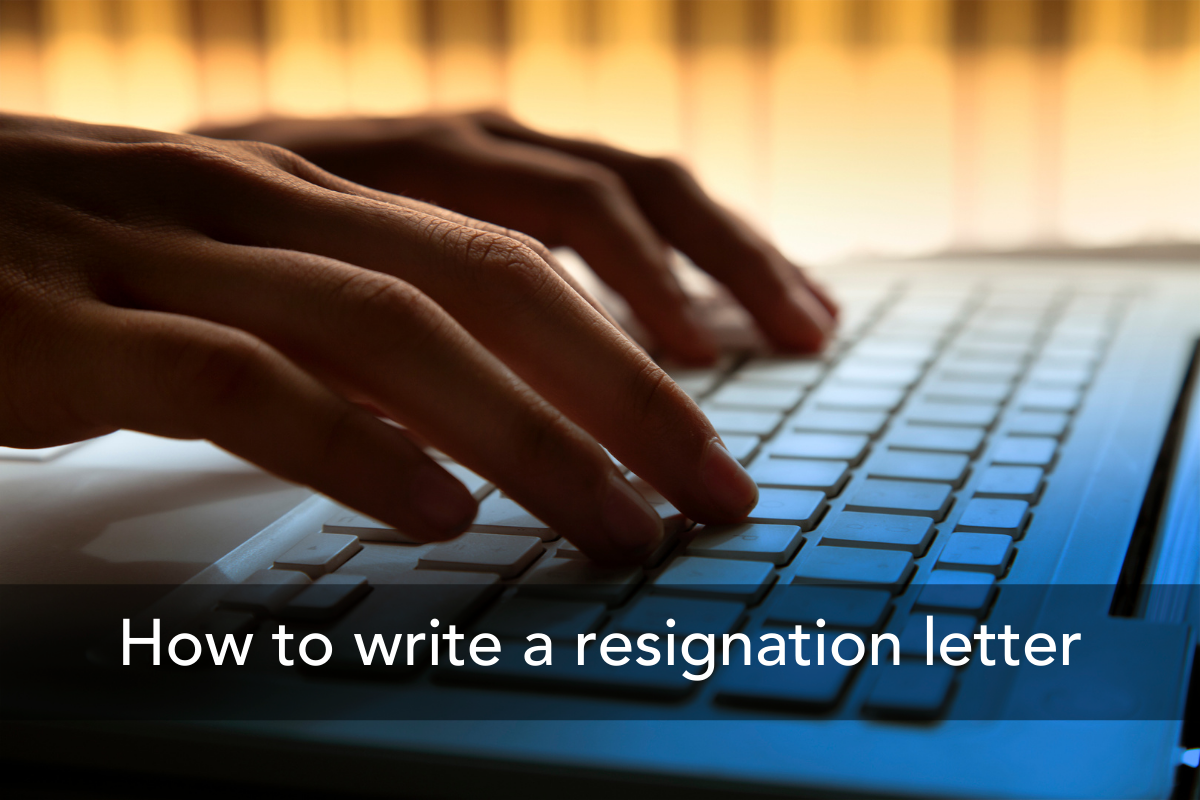The time has come for you to move on. You’ve either had enough or you’ve found a new challenge but you now need to write a resignation letter. Crafting the right resignation letter will impact how well you move on from your current role. Here’s how to write a resignation letter.
If you’re having a bad time at work, it might be tempting to leave under a flurry of fireworks. While dreaming about giving your boss a dramatic speech about what you really think of them, their job and the company might be helping you get through the days at work, it’s generally a bad idea to follow through with this.
The aim of your resignation is to get the best possible outcome for you as you move onto the next stage of your career. You want to make the most of your time at the company, your achievements and the relationships you’ve forged as you never know when you might want to foster this network in future. This is something we help cover in our exit strategies so that you leave under the best possible terms.
Before we get into exit strategy, let’s take a look at how to write a resignation letter and when is the best time to hand one in.
How to write a resignation letter
The first thing to remember when it comes to a resignation letter is to remove the emotion. You want to avoid any office politics or singling out people who have brought you to this decision. Your resignation letter is not the place to air any grievances. If you have an exit interview with HR, you can bring up any issues at this point.
Keep your resignation to the basic facts – that you are leaving and the date of your final day at work. You will want to include the notice period in your contract, so dig this out.
Make sure you also include a paragraph thanking them for the opportunity and experience. Regardless of how you feel about your current employer, it is always best to leave a positive final impression. State some of the achievements you have gained in the role.
Finally, outline how you will support the handover of your duties during your notice period. This too will leave a good final impression on your employer.
When to hand in a resignation letter
If you have a new job offer, then the timing for handing in your resignation letter should be when you get written confirmation of your new job offer. You will have given your new employer your notice period and they will be eager to onboard you into the new role.
Yet, we know that having a new job is not always a trigger for a resignation. Many people feel they need to look at their working life after long periods at home and want to hand in a resignation without a new job lined up. This is especially true of those of you who want to go self-employed or launch your own venture.
If this is you, there is more flexibility about when you resign. Take your time to plan through how much money you will need as a buffer to get you through 6-12 months without employment.
You may well want to re-train or return to studying. In this case, you need to look at your notice period and make sure you hand in your resignation letter before your course begins.
Exit strategy
In any situation, having an exit strategy in place can help you better plan your exit from your current role. This can help you avoid any difficulty in leaving your current company. We work with clients to safeguard their current position while they plan for an exit. Often, it can be hard to see all of your options, especially when you’ve made the decision to leave. We explore all the possibilities and then work to achieve the best possible outcome.
If you are considering a resignation letter, especially if you have no new offer of employment, get in touch with us before you take any action so that we can help you move forwards in your career in the best possible way.
Template Resignation Letter
When you are ready to hand in your resignation letter, here is a template to help you get started.
Dear [Manager],
Please accept this letter of notice of my resignation as [job title] at [company]. According to my contract, I need to give [state amount of notice] and therefore my last day will be [state date].
Thank you for the opportunity and experience with [company name]. In my role as [name role] I have achieved [list three achievements] and I will carry the learnings forward in my future career.
During my [state notice period] notice period, I will help with the transition of my role to a new member of the team. Please let me know what I can do to assist in this process.
Sincerely,
[NAME]



Recent Comments